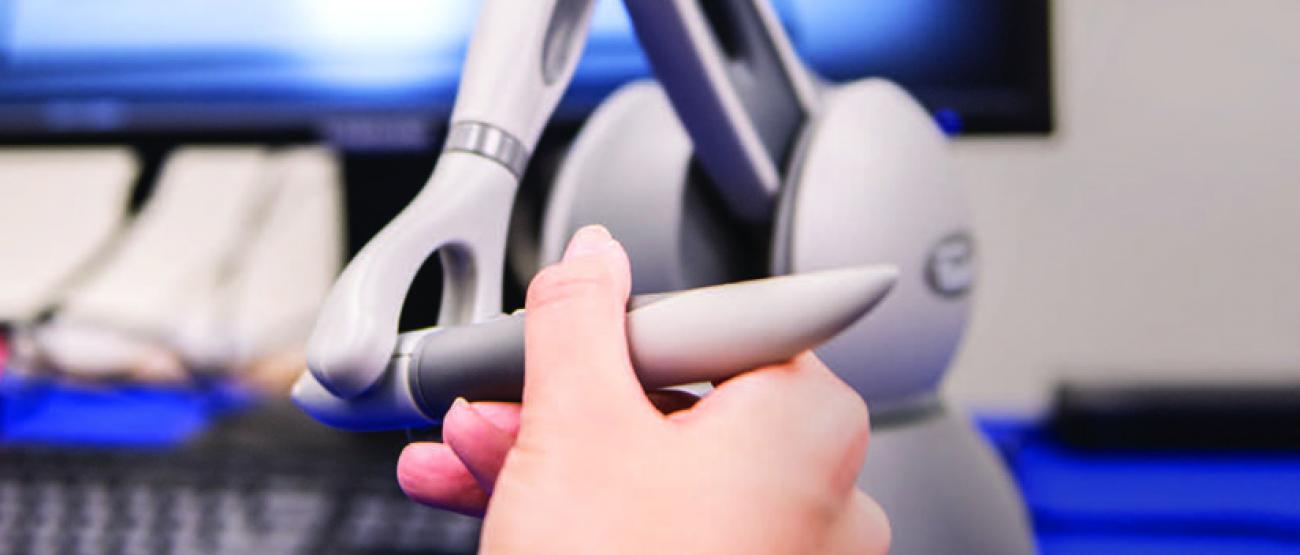Simulator-Trained Med Students Faster Than Peers
Virtual Surgery
Simulator-Trained Med Students Faster Than Peers

While simulation platforms have been used to train surgeons before they enter an actual operating room (OR), few studies have evaluated how well trainees transfer those skills from the simulator to the OR. Now, a study led by Rensselaer that used noninvasive brain imaging to evaluate brain activity has found that simulator-trained medical students successfully transferred those skills to operating on cadavers and were faster than peers who had no simulator training.
Arun Nemani, who earned his doctorate in the Department of Biomedical Engineering, is the first author on the study, along with Suvranu De, the J. Erik Jonsson ’22 Distinguished Professor of Engineering and head of the Department of Mechanical, Aerospace, and Nuclear Engineering; and Xavier Intes, professor in the Department of Biomedical Engineering. They evaluated the surgical proficiency of 19 medical students, six of whom practiced cutting tasks on a physical simulator, eight of whom practiced on a virtual simulator, and five of whom had no practice. Study results were presented at the American College of Surgeons Clinical Congress 2017.
“We plan on using these study findings to create robust machine learning-based models that can accurately classify trainees into successfully and unsuccessfully trained candidates using functional brain activation,” said Nemani.
The medical students who practiced on the physical simulator completed the task in an average of 7.9 minutes with a deviation of 3.3 minutes. Those who used the virtual simulator did the task in 13.05 minutes vs. an average of 15.5 minutes for the group that had no practice.
Brain imaging measured activity in the primary motor cortex, located in the frontal lobe. The researchers found that the simulator groups had significantly higher cortical activity than the group that had no training.
“This is a significant leap in the use of noninvasive brain imaging technology to quantify human motor skills and represents a paradigm shift in which surgeons and other medical professionals may be certified and credentialed one day,” said Suvranu De.